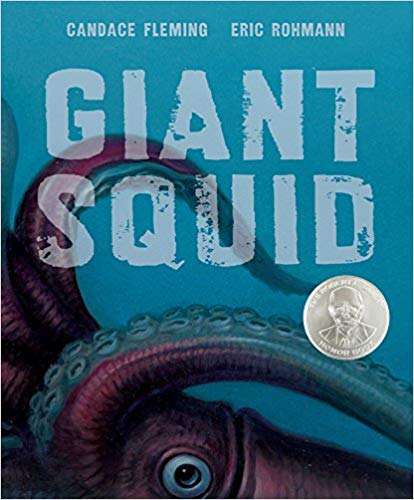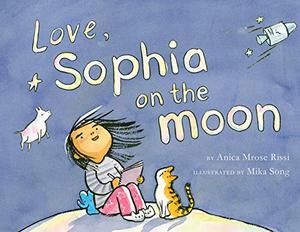|
In the realm of aspiring authors, the dream of holding a published book—crafted with dedication and passion—is often intertwined with the pursuit of a traditional publishing deal. However, securing a spot on the shelves of revered publishing houses is far from a smooth sail. It's a path strewn with challenges, delays, and uncertain outcomes, prompting many writers to explore an alternative route: self-publishing.
The age-old debate between traditional publishing and self-publishing continues to evolve, presenting authors with a pivotal choice. Traditional publishing has long been the hallmark of literary success, promising wide distribution, editorial support, and the prestige of seeing one's work nestled among renowned titles. However, the path to securing a traditional publishing deal can be arduous. One of the foremost challenges in the traditional publishing realm is the enduring waiting period. Aspiring authors often face months, or even years, waiting for responses from publishers or literary agents. The anticipation of an acceptance letter, while holding onto the manuscript's fate, can be emotionally taxing. Rejections, an inevitable part of the process, can weigh heavily on an author's spirit, leading to self-doubt and prolonged delays in getting their work to readers. Amidst the labyrinthine corridors of traditional publishing, the rise of self-publishing platforms has emerged as a beacon of hope for authors seeking autonomy and quicker routes to publication. The digital era has bestowed writers with the power to take their manuscripts directly to readers, bypassing the gatekeeping practices of traditional publishers. However, the shift to self-publishing presents its own set of challenges, raising pertinent questions about its viability and earning potential. The financial aspect plays a significant role in an author's decision-making process. Traditional publishing typically offers an advance against royalties, yet the actual royalties might not meet expectations. Self-publishing, on the other hand, presents higher royalties per sale but necessitates diligent marketing efforts. Authors must weigh the potential financial gains against the investments required in both avenues. Self-publishing, while offering autonomy and swifter publication, has its hurdles. Authors must shoulder the responsibilities traditionally handled by publishing houses—editing, cover design, marketing, and distribution. The need for meticulous planning and personal investment in these areas often becomes a daunting aspect for many writers venturing into self-publishing. However, the extended waiting periods in traditional publishing not only test an author's patience but also delay the book's journey to readers. Manuscripts might languish in submission queues, causing frustration and hindering an author's progress in reaching their audience. This waiting game prompts writers to reassess their options, considering the potential benefits of self-publishing, where timelines are under their control. Amongst these considerations, a question often arises: Does being self-published diminish one's status as an author? The answer unequivocally asserts that self-published authors are indeed authors. The act of self-publishing embodies an author's determination, creativity, and dedication to bringing their vision to life. It's a testament to the evolving landscape of publishing and an author's entrepreneurial spirit. The road to publication, however, doesn't inherently determine the value or worth of an author's work. Whether a book is traditionally published or self-published, its significance lies in the content—the story it tells, the knowledge it imparts, and the connection it forges with readers. Authors like Andy Weir, Amanda Hocking, and E.L. James have proven that success can be achieved through self-publishing, showcasing the potential of this route. They transformed their self-published works into literary sensations, leading to traditional publishing deals or widespread acclaim. In essence, the journey to publication—whether traditional or self-published—is a tapestry woven with diverse challenges, opportunities, and individual choices. The traditional route, with its established infrastructure and potential for wider recognition, contrasts with the autonomy and swiftness of self-publishing. Authors today stand at a crossroads, armed with options that didn't exist a decade ago. The decision between traditional and self-publishing hinges on an author's aspirations, priorities, and vision for their work. Each path bears its fruits and challenges, ultimately leading to the fulfillment of an author's goal—connecting with readers. As the publishing landscape continues to evolve, the definition of literary success expands beyond the traditional norms. Self-publishing has emerged as a formidable force, redefining the dynamics between authors and readers, empowering writers to tell their stories, share their knowledge, and shape their destinies. In the end, whether an author chooses to embrace the traditional publishing labyrinth or navigate the seas of self-publishing, what truly matters is the power of storytelling, the impact on readers, and the profound journey of creation—an odyssey that transcends the mere means of publication. And, getting your words in the hands of readers.
0 Comments
As an avid reader of all genres, especially of psychological thrillers, I was pleasantly surprised to read in Psychology Today, that reading psychological thrillers are not just captivating and suspenseful; they also provide surprising health benefits. Engaging with these gripping narratives can have a positive impact on our well-being, both mentally and emotionally.
Let’s explore the various health benefits of reading psychological thrillers and why they can be a valuable addition to your reading list. And then I’ll give you a reading list to start with.
With this good news, if you're a fan of spine-chilling suspense, mind-bending twists, and psychological intrigue, then these five psychological thrillers I listed are a must-read. Prepare to be captivated by the dark and twisted narratives crafted by talented authors. From heart-pounding mysteries to unsettling secrets, these books will leave you guessing until the very end. Let's dive into the thrilling world of psychological suspense and discover the gripping tales of "I Know Where She Is" by S.B. Caves, "Sharp Objects" by Gillian Flynn, "Into The Water" by Paula Hawkins, "Pretty Girls" by Karin Slaughter, and "Her Missing Husband" by A.J. Campbell.
So, the next time you pick up a psychological thriller, remember that you are not only indulging in a thrilling story but also nurturing your mental and emotional health. Enjoy the journey into the enigmatic worlds of these captivating narratives, and embrace the benefits they bring to your well-being. Happy reading friends! Verbs are one of the most important components of language and are particularly valuable in writing for children. They are action words that provide movement, energy, and excitement to a story, capturing the imagination and attention of young readers. Verbs have a unique ability to bring characters and scenes to life, making them essential in creating engaging and memorable stories for children.
One of the primary values of verbs in writing for children is their ability to add action and excitement to a story. Children are naturally drawn to stories that are full of movement and adventure, and verbs are the key to creating this sense of excitement. When used effectively, verbs can create a sense of urgency and tension, making it more likely that children will stay engaged with the story. For example, verbs like "sprinted," "leapt," and "climbed" can be used to create a sense of urgency and excitement in an adventure story. Verbs Help Readers Visualize Details Verbs also have the ability to create vivid and memorable descriptions in children's writing. When used to describe a scene or character, verbs can help readers visualize the details of the story more clearly. For example, verbs like "sparkled," "glimmered," and "twinkled" can be used to create a vivid description of a magical forest. These types of descriptive verbs can help children to create mental images of the story, making it easier for them to become fully immersed in the narrative. Verbs Add Action In addition to adding action and description to a story, verbs can also be used to develop character and voice. Different characters can be distinguished by the verbs they use, which can reflect their personalities and motivations. For example, a brave and adventurous character might use bold and daring verbs like "charged," "conquered," or "pioneered," while a timid or fearful character might use more hesitant verbs like "trembled," "shuddered," or "hesitated." These subtle differences can add depth and complexity to a story, making the characters more relatable and realistic to young readers. Another value of verbs in writing for children is their ability to encourage active reading and comprehension. By using verbs to describe actions and events, children can better understand the story and remember key details. Active verbs can also be used to create vivid sensory details, helping children to engage their senses and imagine the world of the story. This can help children to become more active and engaged readers, improving their literacy skills and helping them to develop a love of reading. And, isn’t that the goal of all writers?
I may be a children's writer, but I entered the IFW Holiday Romance contest w/ $1,300+ prizes! #amwriting #romance #writingcontest http://bit.ly/holiday-romance. Doesn't everyone love a good romance? FW Holiday Romance Contest Institute for Writers presents our Holiday Romance Contest. Enter an excerpt from your romance manuscript with an emotional scene set during the holiday season. instituteforwriters.lpages.co
As a reading teacher who loves being in the classroom, enhanced online learning has many challenges. However, one of the things that can still be done with ease is story time. The other day I read to my first graders LOVE, SOPHIA ON THE MOON written by Anica Mrose Rissi and beautifully illustrated by Mika Song. My students loved it! And so, did I. The premise of the story is Sophia runs away to the moon with her cat Mr. Wubbles after she is put in timeout. In letters back and forth, Sophia expresses all the wonderful things about the moon, while her mother expresses all the comforts of home Sophia is missing. In this loving exchange, mother and daughter reunite and it is a wonderful reminder to children that no matter how angry our parents may get, they will always love us. And there’s no place like home. Highly recommend this book !
I love contests and during these trying times it's wonderful to get a break from all that's happening around us. A big thank you Kaitlyn Sanchez and Ciara O’Neal for hosting such an awesome event! And thank you to all the wonderful volunteers who will be donating their time and expertise for such amazing prizes. #SpringFlingKidLit Mabel’s Bunny Pups by Christine Nanfra
Mabel wanted a bunny ever since she read the Peter Rabbit stories. One day she asked, “Can I get a bunny with long floppy ears?” Mama said, “Maybe for your birthday.” But that never happened. Another day Mabel asked, “Can I get a bunny with a cottontail? Papa said, “Maybe for Christmas.” But that never happened. Again, she asked, “Can I get a bunny with a cute little nose?” But this time Mama and Papa didn’t answer. “Maybe Easter?” Mabel asked. Mama and Papa smiled. Easter was a few days away and Mama said, “We have a surprise for you.” “A bunny?” she jumped. “No. Two rescue puppies.” Boom! Crash! Two puppies rambled in and plopped by Mabel’s feet. They weren’t bunnies, but they were cute. Mama asked her to think of names. Easter morning Mabel bounced out of bed with an idea. “Ta-Da! Meet our bunny pups: Flopsy and Mopsy!”  Review of Giant Squid by Candace Fleming As a writer for children, an instructional reading specialist, and a parent, I cannot get enough of this book. It has all the elements a great picture book should have. All of Candace Fleming’s books have a similar style of word play, but as a non-fiction piece it is brilliant. The reader is immediately drawn into the amazing, mysterious, and dark world of the Giant Squid. And the illustrations by Eric Rohmann are truly remarkable. It is a perfect marriage of art in the written and illustrative forms. Fleming brings us into the squid’s dark, underwater home. She leaves us with questions that are still unknown about this fascinating creature that has “the biggest eyes on the planet”. And a “terrifying tongue” with eight powerful tentacles that squeeze whatever is in its path. If the words weren’t so captivating it would truly be terrifying. Buy this book. You will not be disappointed. As a writer, I write about many subjects and across many genres. For the past few years I have been concentrating my efforts on writing for children. Though I love it and feel it is a natural fit for me, especially since I am an elementary school reading teacher, it has also been the most difficult of genres to break through. The competition is vast, and it appears to be quite selective. That said, I am determined to succeed through hard work and perseverance.
I go to writing conferences, read everything I can get my hands on, and of course write. I have a website, as well as a presence on Twitter where I follow all the publishing giants and agents. I belong to a critique group that helps ground me and keeps me from submitting before many revisions later. And through it all, representation and/or a book contract remain elusive. In many ways I liken the submission process to dating and especially dating websites. After serious review of the available agent/editors, I determine whom I will query. It is a painstaking process looking through manuscript wish lists, which in many ways is similar to reading profile matches online about liking long walks on the beach, sushi and cuddling on cold nights. Determining if agents are still open to subs or, as in the dating world: are they really available and not married? Who the agent represents, and trying to decipher if we would make a good fit? Again, do they really like long walks on the beach or is it a come-on line? After the send button is pressed, the query is off with a prayer and a hope to the agent/editor, or the ‘match’. The waiting is the hardest. Will they like my story enough to pursue, hence will they like me enough to ask out? Waiting and hoping is the daily mantra, wanting desperately to hear back with positive news, or a date. Because after all, writing, like dating is subjective. Agents don’t know if they like something until they read the story and it sparks something for them. Sort of like sparks flying over a shared bottle of wine. But the thing is in my world today … I would rather score the contract over the date. This was previously published on my blog at www.afterdivorce.net. It's an important message to share! For those of us unfortunate enough to have gone through a divorce, we know it is a tumultuous time in everyone’s life. For you, your ex, both of your extended families, and mostly your children. In fact, you may find yourself thinking and doing things that are out of character of your true self. If you talk to anyone who has gone through it, it is astounding how you will always hear “I don’t know who this person is anymore.” Sadly, they are right! Divorce is life altering and the person you once thought had your back, is the same person wanting to stab you in the back, at least in court.
It’s a fact that people going through divorce are usually more emotionally off keel (temporarily) due to the stress they are under. Because of this they don’t always make rational decisions. However, when children are involved it is imperative to keep as much normalcy as possible for their sake and their long-term stability. Below is a partial list I found online in an article from Lois Misiewicz (2011). This isn’t her complete list, I made quite a few additions and deletions. Keep in mind, these are not always easy to follow, but in the end taking the high road, even when you know your former spouse isn’t, will send clear signals to your children that they can trust and rely on you. Some of these may sound simple, but again, nothing is simple when it comes to divorce.
4. Your children should not know the details of your divorce… regardless of their age. They still have a right to love the other parent. Less is more here. 5. If you are in a new relationship don’t expect your children to fall head over heels for that person just because you have. Keep your emotions at bay. In fact it would be best for your children to only meet people you see a future 6. If you feel the need to talk trash about your spouse don’t do it when there is even a remote possibility your children will hear you (another very hard thing to do). 7. Don’t question the children regarding the activities of your (ex) spouse. You are both done, so move on! 8. You can't change what has already ready happened so don’t continually rehash the past. Try instead to learn from it for your future relationships. 9. Your children are not messengers. Aside from putting them right in the middle, you are also relying upon the child to get the message to your spouse correctly and in the manner you meant it. Do your own communication. 10. Don’t stop the children from seeing the other parent because he or she owes you money. I know during the process I myself made a few blunders and did things I shouldn’t have. But as time wore on, I realized the only people I was hurting were those I loved the most: my children. If you try to adhere to this advice, you will find your behavior shifting toward rationality and maturity daily. Yes, it is easier said than done, but your child’s well-being is really on the line here, and in many respects, so is yours. I would love to hear your stories or your comments. As a writer, it’s important to study your craft. The best way to do that is to read. Read, read, and read some more. Before I started writing picture books, I must have read a few hundred. It’s important to see the structure, to get a feel for the word count, and to study how much the words say as opposed to the illustrations. Since as writers, we tend to overwrite, we can lower word count for picture books by allowing the illustrations to say what we cannot in the short text.
I have also been writing a young adult fiction book for a few months now. So naturally, I’ve been reading quite a bit of this genre. I have found that publishers are allowing writers to really push boundaries on sexuality, gender identification, diversity, and so much more. It’s such an exciting time to be a writer. Plus, it does seem that editors and agents are more accessible thanks to Twitter and other social media platforms. But … As exciting as it is, it also seems harder than ever to break through. Of course, self-publishing is an option. One that I have already accomplished for my non-fiction book on divorce for my readers of my website www.afterdivorce.net. I didn’t attempt the traditional publishing route, since my purpose was to finish as soon as possible to have something to offer my readers on my website. However, more and more writers are taking the self-publishing route since the traditional route takes such an agonizing long time, with many rejections dotted along the way. But being quite determined, I am persevering and not giving up. In fact, I see it happening in my not-so-distant future. So, in my quest to read as much YA as possible, I have stumbled on some really good ones, to some not so good ones. Naturally, like anything, there are hits and misses, but some are just plain out there that I shake my head and wonder how did this get published? Thankfully, that doesn’t seem to be the norm. The YA market welcomes innovators to forge new paths and once taboo subjects are welcome. A YA book I recently read THE LAST TO LET GO, by Amber Smith tackles family domestic abuse as well as a young girl discovering and embracing her identity. I thought it was extremely well-written and Smith showed how the abuse manifested in the main character and her siblings, instead of telling the reader abuse stories. Also, when you read books about writing or go to writing conferences there seems to be an extensive amount of time spent on the many dos and don’ts to know. But just as there must be a framework of sorts to follow, it’s also good to know that it’s just that: an outline to follow that is not set in stone. For instance, I read that in YA there should be limited point of view, yet the book ONE OF US IS LYING, by Karen M. McManus has four main characters, each having their point of views. It was exciting to read, and the different characters kept the story moving at a great pace. During this innovative time in writing, it’s also important to settle into a rhythm of sorts and find a critique group. During a conference I went to last year, one agent mentioned that she would never even consider taking on a client if he/she wasn’t in a critique group. At first I thought that was a bit harsh, but after being in one, I get it. I find I am held accountable to a higher standard with my writing to someone other than myself. I believe it has improved my writing and I am more prolific than ever before. As writers we must study our craft by reading, writing and getting critiqued regularly. It’s the only way we learn and grow. It’s also important to keep up with publishing trends, and one helpful, informative way is through Publisher’s Weekly. As always, keep up the good writing and reading. Wishing you many successfully writing blessings to come. |
AuthorI write Picture Books, Chapter Books and YA. Categories |




 RSS Feed
RSS Feed